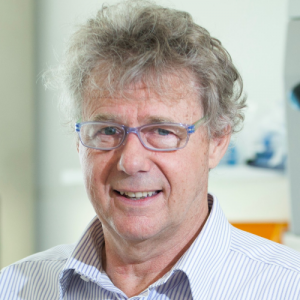
Most common autoimmune diseases, including MS, have a “latitude gradient” in their occurrence, where the further from the equator you live, the more likely you are to develop disease. This is thought to relate to the amount of UV light you are exposed to and therefore how much vitamin D you make in your skin. Some of the genes involved in increased risk of MS and other autoimmune diseases are directly involved in metabolism of vitamin D in the body. This points to the importance of the vitamin D pathway in the development of autoimmunity. Yet giving people with MS vitamin D supplements in clinical trials has produced mixed results.
Professor David Booth, Dr Grant Parnell and their team have previously shown that this is probably because the form of vitamin D used in many trials requires activation in the body before it can have its effects. The genes controlling the activation of this vitamin D may be faulty or inefficient in some people with MS, which could therefore limit the response to oral vitamin D supplements.
Currently there is no way to assess a person’s response to vitamin D. This project aimed to develop such a test, and to demonstrate that supplementation instead with active vitamin D avoids the faulty inactivation pathway in MS, providing better protection from disease.
The team collected blood from people with MS and people without MS. They separated out different immune cells from the blood and tested the effects of a partially activated form of vitamin D, called calcifediol, on these cells in culture. They measured which genes were switched on and off by active vitamin D. They also tested the effect of the vitamin D on immune cells in the presence of agents that induce inflammation.
Several MS risk genes were switched on in response to vitamin D treatment or inflammatory signals. This response was similar between people with MS and those without MS, but interestingly, people with MS tended to have lower levels of genes already switched on in their untreated samples. After treatment of their cells, there was no difference between people with MS and people without MS. The results were not associated with levels of vitamin D measured by standard blood tests, suggesting that these tests are not a good measure of vitamin D effect in the body. The team were also able to use different agents to stimulate inflammation in specific groups of immune cells, to distinguish the vitamin D response of individual immune cell types.
Overall, the team has identified genes that respond to vitamin D in culture, shown an alteration in the baseline levels of these genes in MS, and that this is corrected by vitamin D treatment in culture. This project has provided essential biological and technical knowledge towards the development of a test for vitamin D response of the immune system, which is more meaningful for treatment of MS and other autoimmune diseases than current blood tests for vitamin D. This work is currently under review for publication.
Ultimately it is hoped this research will help to ensure that vitamin D supplementation can be tailored to an individual’s specific genetic make-up and the most effective treatment for every individual with MS.
Updated: 3 May 2021
Updated: 05 January, 2019

Laboratory research that investigates scientific theories behind the possible causes, disease progression, ways to diagnose and better treat MS.

Research that builds on fundamental scientific research to develop new therapies, medical procedures or diagnostics and advances it closer to the clinic.

Clinical research is the culmination of fundamental and translational research turning those research discoveries into treatments and interventions for people with MS.

